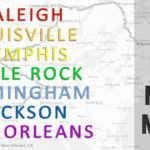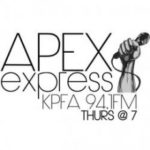Mia has been attracting a lot of attention in the Queer API world with her incredible photos of folks who are Queer API for the Visibility Project. Asian, Gay and Proud is extremely excited to welcome her here to this space to get to know her better.
Mia Nakano works a little more than full-time as the Co-Director & Digital Manager of the largest photo community space west of the Mississippi, RayKo Photo Center. She contributes to a multidue of organizations, movements, and people to make social justice. Her diverse professional background allows Nakano to shoot images with impact from studio portraiture to editorial photography. She takes lead on projects as a photographer, instructor, project manager, photo-editor, web designer, marketing co-coordinator, or administrative powerhouse. When she’s not cranking out her latest project, you can find her in the kitchen, darkroom, or building a terrarium out of found objects.
Who? name, age, what you identify as (or not)
My name is Mia Nakano, I’m a 32-year old Queer Japanese American living in Oakland, CA. I grew up in one of the wealthiest suburbs of Southern California surrounded by privilege, incredibly conservative politics, uber religious peers, but attended an ethnically diverse high school. At home, life was drastically different than most other kids. No CEOs or Lawyers in my family. Mom was a dance teacher at a community college, Dad passed away after a two-year battle with cancer when I was 7-years old, and I have a profoundly deaf sister. We spent a significant amount of time at the hospital or doctor’s office to attend to the health issues that my father and sister were struggling with.
A huge part of my identity comes from the fact that my parents lives were directly impacted by WWII. On the maternal side my mom and grandmother were detained in Japanese Internment camps, even though they were 2nd and 3rd generation Japanese Americans (Nisei and Sansei). My father was 1st generation, and came over to the states after the war, after his family pretty much lost everything. Growing up, I was taught how tenuous freedom and financial worth can be. Most of the kids I went school with had insane amounts of money, brand new BMWs, designer clothes, etc. Privilege extraordinaire. The fact that my family’s freedom as American citizens was stripped so easily because of mass hysteria, and watching the struggles my sister went through as a deaf person, are cornerstones in how I identify, and critically analyze the world today.
What? what do you do for a living or things you would like to do.
There are a multitude of things I do for a living, most involve photography, and being a photographer is a huge part of who I am. Some friends joke about how I am a human camera. Whenever I’m wandering around without a device to capture images on, I take pictures with my eyes. Cheesy, I know, but true. For my day job, I’m the Co-Director and Digital Manager of one of the largest photographic community centers in the country, RayKo Photo Center. I definitely recognize how lucky I am to have my dream job. Activist, artist, social justice change maker, and community organizer are a few other titles lingering in the “what do you do” question.
When I’m not at RayKo, I’m the founding photographer and film-maker behind the Visibility Project, a media project documenting Queer Asian Americans who currently or have identified as female in some way: trans, gender queer, lesbian, bi, cis, two-spirit, and a multitude of terms I’m still waiting to discover. The Visibility Project combines straightforward and emotionally powerful portraits of Queer Asian Americans to breakdown the ethnic, racial, gender, sexual, and class stereotypes that Queer Asian Americans face. Through the video interview portions, participants use their individual voices and life stories to present the diversity of this growing community. Why I started the project, is a whole other string of questions.
It’s been a wonderful way for me to connect with folks on a national level, and each person has inspired me to continue the work because of the significant impact it’s already had. The Visibility Project is turning into my life’s work and is connecting people all over the country. I hope it inspires others, as much as it inspires me, and gives an accessible voice to the phenomenal stories of each participant.
When did you come out? Any stories?
I suppose the most straightforward answer is that I began coming out to myself around 18-19 years, but didn’t consider myself as out until I told my mom at 24ish or so. I’m still very amused that this happened on national coming out day, and I didn’t even realize it. At the time I was the photo-editor for Hyphen Magazine, and ended up writing a silly short story about my experience.
The coming out process is perpetual. When the outside world looks at me, they automatically know I’m Asian, but I don’t walk around with a shirt that says, “I’m gay”. Recently I just took a random poll amongst friends, who told me it was very obvious I was queer when I was rockin’ a bleached blond fauxhawk. Now with long hair it’s not as obvious. This small example is just one of the reasons why I started the Visibility Project, to break down some of the superficial stereotypes of what a queer person is supposed to look like.
How did coming out impact your career or relationships with others?
Living in the San Francisco Bay Area and working in the arts, I’m very lucky to be surrounded by incredibly supportive communities. However, when I was going to college at San Diego State, and at my high school, it was the complete opposite. On the periphery, I saw queer folks who were victims of physically violent hate crimes, and definitely didn’t feel support from my “friends” in San Diego. I would consistently talk to folks about how hurtful off-hand homophobic remarks could be and why they weren’t ok.
The Bay Area isn’t immune to this type of behavior, but it’s definitely less pervasive. Also with the growing strength and visibility of the queer community from politics to pop culture, I feel like there’s more and more support. The dichotomy is that it’s also very easy to assume that because organizations, education, and communities have such a strong presence online, that people automatically have support if they need it. Not true.
Ultimately, the most significant impact that my coming out had was with my relationship with my mom. I could tell her about my partners, introduce her to my framily (friends + family), which just added on to the lengths of our conversations. I feel incredibly lucky to have such a wonderful close family who supports and appreciates who I am, without feeling the need to change me. I was incredibly nervous about coming out to my sister who is a very religious Republican. During that conversation, I realized that I had my own stereotypes to work through. Her verbatim response when I said I was gay was, “I know, but thank you for telling me. You know those people out there pretending to be Christians and hating on gay people, aren’t really Christians. I accept and love you for who you are, I mean it’s not like you expect me to be gay too, and I wouldn’t expect you to be straight because I’m straight. I mean, that’s just stupid”. Amazing!
As I continue work on the Visibility Project, I meet Queer Asian Americans all over the country, and come out to them too. It provides an immediate and invaluable connection, mixed with a baseline mutual respect between two strangers who may not have met otherwise.
Advice you can give to other Asian, Gay & Proud readers.
Hmm, advice. This question makes me think about the struggles I had coming out. Growing up in the 90’s, I never saw any queer folks in the newspapers, magazines, or TV. Having any Queer role model was non-existent, regardless of whether they were positive or negative. And forget having a Queer Asian American role model. The accessibility of the internet has definitely changed this, but there’s still a ton of work to be done to increase the Visibility of our community.
Two people who have participated in the Visibility Project immediately come to mind, when I think about the invisibility of the Queer API community. One person, Tatjana who is a male-to-female trans activist living in Los Angeles, came up to me after her shoot and said, “thank you for doing this. This day is the first time I’ve ever felt a part of something, a part of a true community”. During the NYC shoot, my colleague Shawn came up with the great idea to ask participants if they had any questions for the audience, anyone who might be watching their interview. Laura asked very simply, “if there’s no Queer API woman represented in mainstream media, does this mean that I’m not important.
Does it mean that I don’t exist?” I cannot express how much of an impact these two incredibly short exchanges had on me. Tatjana’s comment filled me to the brim with joy, and Laura’s question fueled the inspiration to continue finding avenues for the participants voices to be heard.
I pick and choose my battles with clear intention, and am perpetually learning how to seek help or ask advice. I’ve finally begun to accept that I can’t change the world in one day; it’s been a long road to this conclusion. Perhaps these random proclamations aren’t exactly advice, they’re more a commentaries on how I try to approach things. Take things in stride, in small bites, rally to make change, revel in the victories, learn from and be accountable for mistakes, and don’t take yourself too seriously. There’s so much adversity in life, at times it’s difficult to remember the huge steps we’ve gained, whether it’s gay rights, civil rights, women’s rights, or whatever minority rights you want to take into consideration. Regardless of what’s happening I try to find humor in whatever I can, never underestimate the power of community that can come from a good meal, or the unconditional love that a cute kitten provides.


